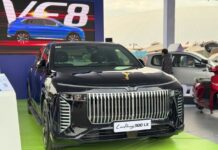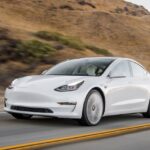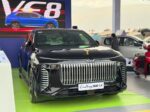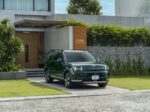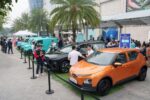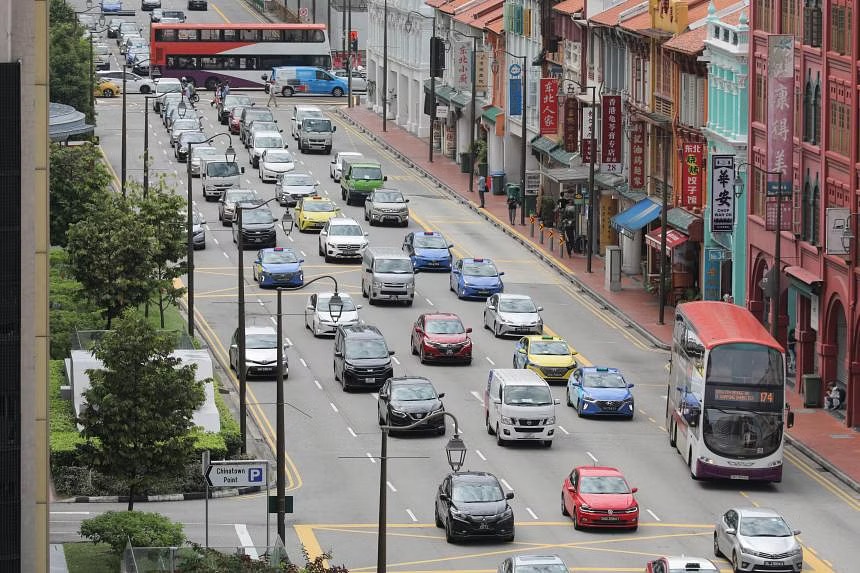
|
According to The Strait Times, diesel-powered taxis and cars will no longer be registered in Singapore from the beginning of January next year. This policy is part of the Lion City’s efforts to ensure a completely green transport roadmap by 2040.
Since the policy was first announced in March 2021, the annual new registration rate for diesel-powered taxis and cars has been maintained at below 1%. According to the Land Transport Authority of Singapore (LTA), this achievement is mainly due to the fact that Singapore’s automobile market is offering cleaner alternatives to diesel vehicles.
Singapore has also passed regulations mandating that all new car and taxi registrations by 2030 must be for clean energy models.
For owners of diesel-powered cars registered before January 1, 2025, the Certificate of Entitlement (COE) can still be renewed, but instead, car owners will have to pay higher road taxes to limit the possibility of renewing this permit in the future.
|
|
However, the LTA said that restrictions on new registrations for diesel vehicles will not apply to the import and registration of Classic and Vintage vehicles.
Specifically, to be classified as Classic, a car must have a minimum age of 35 years from the first registration, while also meeting relevant technical requirements. On the other hand, the Vintage group will include well-preserved automobiles, motorcycles, or scooters with high heritage value and produced before January 1940.
As of the end of May, there were a total of 19,972 diesel-powered cars and taxis on the roads in Singapore. However, this group of vehicles accounts for only a relatively small proportion of the total 164,759 diesel vehicles in the Lion City, with the majority being goods vehicles and buses.
According to The Strait Times, about 17% of all vehicles in operation in Singapore are diesel-powered. The proportion of diesel vehicles in the passenger car group in Singapore is about 2.7%.
In the past, taxis in Singapore were mainly diesel-powered, but now, most of the taxi fleet has been converted to gasoline-electric hybrids or fully electric models. As of the end of May, about 16.8% of the total 13,300 taxis in Singapore were still diesel-powered.
|
|
The Strait Times commented that Singapore’s policies to encourage the transition to green transport have been showing positive signals.
As of the end of May, about 88.6% of the total 143,565 goods vehicles in Singapore were diesel-powered. This ratio has improved significantly compared to the 95.8% recorded at the end of 2020. For buses, the above ratio is currently at 97.4%.
The newspaper The Strait Times quoted a commitment from the LTA, saying that the agency will only purchase clean energy public buses and replace half of the 6,000-strong fleet with electric vehicles by 2030.
Back in 2021, Mr. Ong Ye Kung – who was then Singapore’s Minister of Transport – said that motor vehicles in the country were emitting about 6.4 million tons of CO2 per year.
He believes that if all light vehicles in Singapore, including cars and taxis, switch to electric power, net carbon reduction could be as high as approximately 1.5-2 million tons per year, equivalent to about 4% of Singapore’s total national emissions.
|
|
According to The Strait Times, most taxi companies in Singapore are ready to give up diesel vehicles and switch to gasoline-electric hybrids.
Among them, ComfortDelGro – Singapore’s largest taxi company – launched a tender last year to purchase 1,000 gasoline-electric hybrid taxis. The newspaper The Strait Times said that this move aims to replace the Hyundai i40 diesel taxis that will end their life cycle this year.
Good Books to Read on the Go
The Car category brings readers interesting book titles on a variety of topics. On those journeys with cars, it’s not uncommon to take a break and relax, and books are an interesting companion.
Sure, I can assist with that.
## The Taxi Cooperative Federation Purchases and Leases VinFast Vehicles from GSM
On September 4, 2024, the Southern Economic Union Cooperative Alliance took a significant step towards sustainability by signing a strategic partnership with GSM. The alliance has committed to leasing and purchasing 5,000 VinFast electric vehicles in 2024, with the ambitious goal of phasing out their existing fleet of gasoline-powered cars.
VinFast Partners Exclusively with Al Mana Holding (Qatar)
VinFast Auto is proud to announce its exclusive partnership with Al Mana Holding, a renowned distributor, to bring its electric vehicle revolution to Qatar. This strategic collaboration marks a significant step forward in VinFast’s journey of becoming a global smart electric car brand, offering an enhanced customer experience and contributing to a sustainable future. With this agreement, VinFast Auto solidifies its commitment to expanding its international presence and bringing its innovative, eco-friendly vehicles to new markets.

